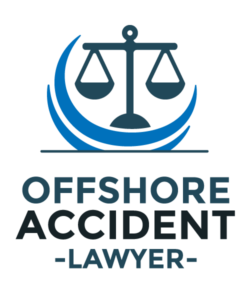Maritime PTSD: Psychological Injuries at Sea
Maritime work is demanding, unpredictable, and often dangerous. While many discussions about maritime injuries focus on broken bones, head trauma, or other physical harm, psychological injuries can be just as serious.
Post-traumatic stress disorder (PTSD) is a common yet often overlooked condition that affects maritime workers after traumatic events at sea. Understanding the signs of maritime worker PTSD, the causes, and the legal options for recovery can make a significant difference for those affected.
How PTSD Affects Maritime Workers
PTSD can develop after experiencing or witnessing a traumatic event. For maritime workers, this may include ship collisions, fires, man-overboard situations, severe storms, or witnessing serious injuries or fatalities among crewmates. These events can leave lasting psychological scars, even when physical wounds have healed.
The symptoms of PTSD are wide-reaching. A maritime worker with PTSD may experience intrusive memories, flashbacks, or nightmares related to the event. They may also develop heightened anxiety, irritability, or depression, which can interfere with their ability to return to work.
Some develop avoidance behaviors, steering clear of certain job duties, vessels, or locations associated with the trauma. Left untreated, PTSD can strain relationships, lead to substance abuse, and reduce overall quality of life.
Common Triggers and Risk Factors

While any traumatic event on the water can cause PTSD, certain situations carry a higher risk. These include:
- Severe shipboard accidents such as explosions, fires, or equipment malfunctions
- Extreme weather incidents like hurricanes or rogue waves
- Witnessing the injury or death of fellow crew members
- Prolonged exposure to danger during rescue or salvage operations
These maritime incidents are often sudden and intense, leaving little time for emotional processing during the crisis.
Psychological Injuries Are Real Maritime Injuries
Maritime law recognizes post-traumatic stress disorder as a valid workplace injury. For those working at sea, the effects can be profound—persistent anxiety, sleep disturbances, and concentration problems can make it unsafe to perform duties in hazardous conditions.
Effective treatment varies from person to person. Some benefit from cognitive behavioral therapy, others from medication to manage symptoms, and many find value in peer or group counseling with fellow seafarers who understand the unique challenges of life at sea. Physical wellness programs, such as exercise and healthy sleep routines, can also play an important role in recovery.
Addressing PTSD is not just about returning to work—it’s about restoring quality of life after a traumatic event at sea. With the right care, many maritime workers are able to regain stability and move forward.
Legal Rights for Maritime Workers With PTSD

Under the Jones Act, seamen injured in the course of their employment—including those with psychological injuries—have the right to seek compensation from their employer if negligence played a role in the incident. This may involve unsafe working conditions, inadequate training, poor maintenance of equipment, or failure to follow safety protocols.
Maritime law also provides maintenance and cure, which covers living expenses and medical care until the injured worker reaches maximum medical improvement. This applies regardless of fault. For PTSD, this can include therapy, medication, and other necessary treatments.
In certain cases, a claim for unseaworthiness may also be pursued if the vessel itself was unsafe and contributed to the traumatic event. Each case is fact-specific, and consulting with an attorney experienced in maritime law can help determine the best legal path forward.
Steps to Take After a Psychological Injury at Sea
- Seek immediate medical attention. Psychological injuries require prompt care from a licensed mental health provider. Early treatment for PTSD can improve recovery outcomes.
- Report the incident to your employer. Documenting the event and its effects is crucial for any future claim.
- Keep detailed records. Maintain copies of medical evaluations, treatment plans, and any expenses related to the injury.
- Consult a maritime injury attorney. Navigating a Jones Act injury at sea claim can be complex, especially with psychological conditions that may be challenged by employers or insurers.
The Importance of Legal Guidance

If you are struggling with PTSD after a traumatic event at sea, you do not have to face the legal process alone. The attorneys at Schechter, Shaffer & Harris have decades of experience representing injured maritime workers under the Jones Act and other maritime laws.
We understand how to prove the impact of psychological injuries, counter employer and insurance company challenges, and secure the compensation you deserve for medical treatment, lost wages, and pain and suffering.
Your case deserves immediate attention so that evidence is preserved and your rights are protected. Our team can investigate the incident, work with medical experts, and handle every step of your claim while you focus on recovery.
Contact Schechter, Shaffer & Harris today for a free, confidential consultation. There are no upfront fees—we only get paid if we win your case.
The post Maritime PTSD: Psychological Injuries at Sea appeared first on Maintenance and Cure.
Source: Read More



